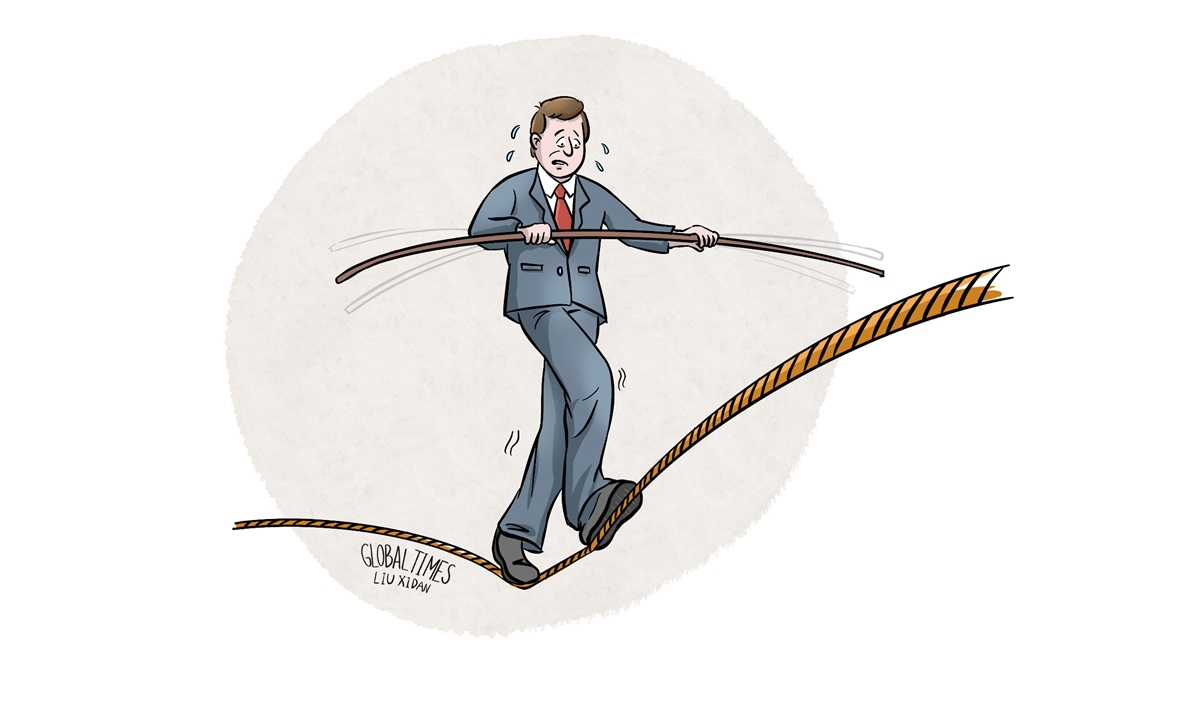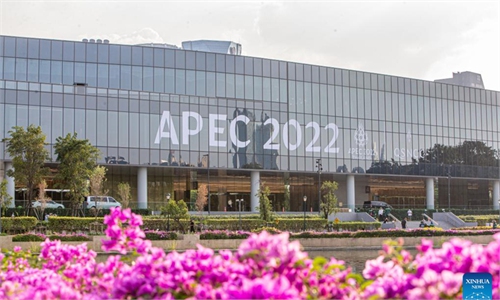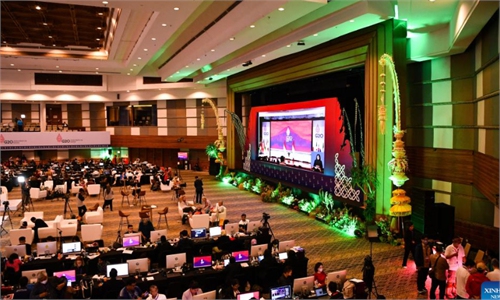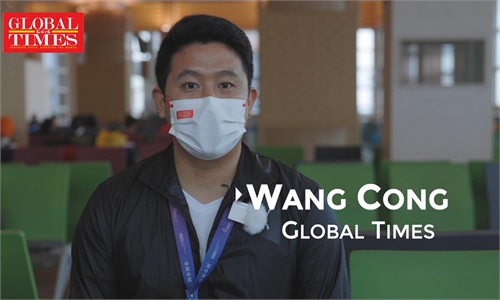
Illustration: Liu Xidan/GT
During the just concluded G20 summit, several leaders sought to meet with Chinese President Xi Jinping, including those of many US allies who actively utilized the multilateral platform of G20 to communicate with China in an effort to ease tense bilateral relations.It shows how widely recognized China's influence is in the international community. Many US allies are aware that the only way to overcome some internal and even global challenges is to work with China. Therefore, it is not unexpected that communications between China and US allies were extensive during G20.
In addition, the tone of the meeting between the leaders of China and the US was relatively positive, which is an auxiliary factor that has prompted the US allies to be more active in their attitude toward China. It can be argued that Washington has not explicitly expressed its intentions to entirely sever ties with China, so how can it press its partners to cut off contact with China? This is obviously contradictory and unreasonable.
Even if the US continually exerts pressure on its allies, particularly the Five Eyes countries that lack political independence, no country will totally neglect its own interests. For instance, the UK's domestic politics is in shambles. Though leaders from both sides did not meet alone, Prime Minister Rishi Sunak has rowed back from officially recategorizing China as a "threat."
Australia, which has acted as the vanguard of the US anti-China crusade, is seeking to improve relations with China. Australian Prime Minister Anthony Albanese confirmed the meeting with President Xi was "positive and constructive."
"The likelihood of some backsliding in Australia's policy toward China cannot be ruled out given the fact that the situation in the Asia-Pacific region is still characterized by elements of instability and uncertainty. Hopefully, Australia can maintain its independence, avoiding being affected by internal and external factors," said a Beijing-based international affairs expert.
What's more, leaders from China and Japan met formally on Thursday during the 29th Asia-Pacific Economic Cooperation (APEC) Economic Leaders' Meeting in Bangkok, the first time in roughly three years. Japan, as the US' most important ally in the Asia-Pacific region, has followed the US step by step, causing various twists and turns in its relations with China. However, Japan's future economic development and strategic readjustment cannot be separated from dialogue with China.
In general, US allies have clear calculations for their own interests. They formulate their foreign policy based on their interests, even though they have certain strategic interests in common with the US. Most importantly, they have close economic and trade ties with China. When it comes to military interests, allies will not blindly join the US camp, especially if tensions escalate into a military conflict. The US alliance system is not ironclad. It is no longer feasible for the US to rebuild the multinational coalition like the Eight-Nation Alliance to contain China.
The US is slowing down, according to Lü Xiang, a research fellow at the Chinese Academy of Social Sciences, since Washington is aware that pressuring its allies too hard will only cause them to lean toward China. Instead of saying the US allies are looking for a new balance between China and the US, it is better to say the US itself needs to find a balance between its geopolitical goal and the geopolitical reality.
American values and ideology are actually losing appeal in the international arena. The world is enriched by different values and systems. The vast majority of countries would recognize this, which would have a strong impact on the US' values-centered diplomacy.
China has the tolerance of a great power. If the US and its allies are not challenging China on core interests, China will politely and sincerely give them some time to come around and look forward to more cooperation in the future.
The author is a reporter with the Global Times. opinion@globaltimes.com.cn



